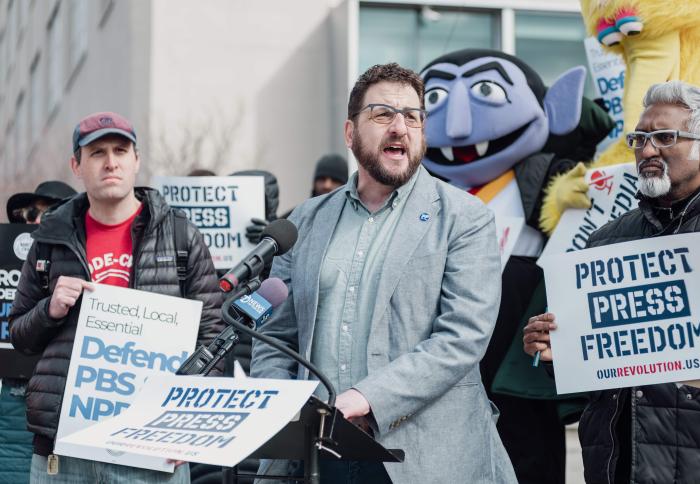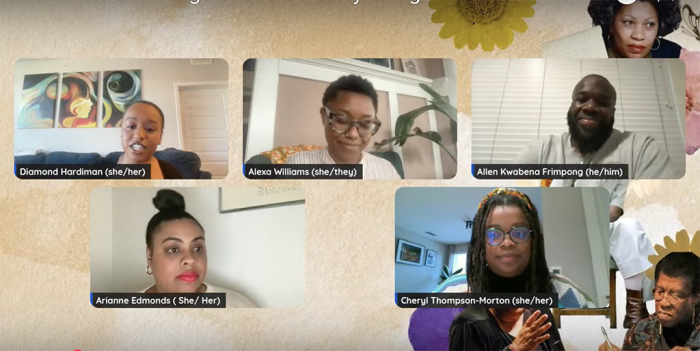Mark Zuckerberg's Failure to Address Spanish-Language Disinformation

At yesterday’s House hearing on online disinformation, Mark Zuckerberg took no responsibility for the unchecked spread of deceitful content on Facebook.
But a new report from the advocacy group Avaaz shows that during the presidential election, Facebook pages sharing voting-related disinformation were viewed a total of 10 billion times. The study slams Facebook for “creating the conditions that swept America down the dark path from election to insurrection” — and shows how the company failed to promptly remove this content. Once it did, it was too little too late.
And while Facebook has failed for years to crack down on English-language disinformation, it’s done next to nothing to address Spanish-language material. Another report from Avaaz notes that while Facebook applies warning labels to 70 percent of English-language disinformation, it does so for just 30 percent of comparable Spanish-language disinformation.
In advance of the hearing, Rep. Tony Cárdenas (D–California) told TIME, “We’ve had Mark Zuckerberg in front of the committee, and he gives us superficial answers and a sad face, but he doesn’t go back to the drawing board.”
That pattern held true during Thursday’s House proceeding. Cárdenas told Zuckerberg that his mother-in-law’s Spanish-speaking friends are afraid to get a COVID-19 vaccine due to Facebook posts they’d seen that claimed that medical practitioners inserted microchips in people’s arms when administering the shots.
Zuckerberg’s response? Crickets.
Spanish-language disinformation about the election, the pandemic, vaccines, climate change and other crucial issues impacts public health and tears at democratic institutions. That’s why Free Press Action and a coalition of allies recently launched #YaBastaFacebook (enough is enough Facebook), a clear action plan that the company must implement if it’s serious about adequately resourcing its Spanish-language content moderation and enforcement.
A call for equity
The groups organizing the #YaBastaFacebook campaign — the Center for American Progress, Free Press Action, the National Hispanic Media Coalition and the Real Facebook Oversight Board — have been urging Facebook to address the Spanish-language disinformation crisis for years:
“Our organizations have met with Facebook several times, we have flagged content through emails, and we have publicly shared our concerns with Facebook about the rampant spread of U.S. Spanish-language disinformation and hateful activities on the platform. We remain deeply disappointed that [our] concerns are continuously ignored. It is time for Facebook to meaningfully act and commit to protecting its Spanish-speaking users.”
In 2020, Facebook announced a series of policy updates and enforcement actions to address militias and election misinformation. The groups immediately flagged Spanish-language content that violated the company’s updated content-moderation policies and issued a series of demands to Facebook that have gone unmet.
The #YaBastaFacebook campaign kicked off with an emergency briefing on March 16 that featured remarks from Cárdenas and the racial-justice advocates leading this effort. “We demand real accountability from Facebook, not more corporate spin,” said Free Press Action Senior Policy Counsel Carmen Scurato.
“There is no excuse for lackluster content moderation in Spanish,” said Free Press Action Co-CEO Jessica J. González. “Here in Facebook’s home state of California, more than one in four residents speaks Spanish. For years now we have put Facebook on notice. But it has continued to profit off of hate and lies instead of keeping our communities safe and informed.”
The campaign's action plan calls on Facebook to take a number of concrete steps, including hiring and publicly identifying an executive to oversee U.S. Spanish-language content-moderation policy and enforcement; publicly explaining the translation process of the content-moderation algorithms; clarifying whether content moderators evaluate content in the original language, via translations or both; and publicly sharing the materials that are used to train content moderators of U.S.-based Spanish-language content.
With actual lives at stake, the need for Facebook to take action couldn’t be more urgent. “We have issued clear demands and a realistic, actionable plan that Facebook must follow,” said Scurato. “Ya Basta, Facebook — this needs to end.”





